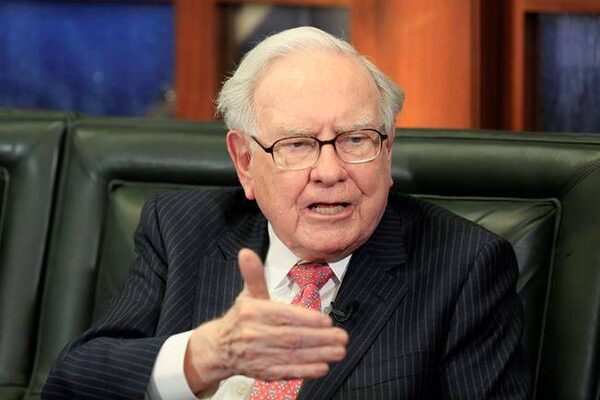
Berkshire Hathaway Chairman and CEO Warren Buffett, shown in this file photo, emerged as Home Capital's largest shareholder in June, giving the company a financial lifeline. But since then, Home Capital’s share price has lost its momentum.Nati Harnik/The Associated Press
Things were looking good for Home Capital Group Inc. shareholders after Warren Buffett threw the struggling alternative-mortgage lender a financial lifeline in June, and emerged as the company's largest shareholder.
But since then, Home Capital's share price has lost its momentum. It has meandered sideways for the past few months, raising questions about whether brave investors should stick with it as a turnaround opportunity.
This week is going to resolve at least one question hanging over the stock: On Tuesday, shareholders will vote on whether Mr. Buffett's firm, Berkshire Hathaway Inc., should be allowed to increase its stake in Home Capital by buying another 24 million shares.
Opinion: Why Home Capital shareholders should back Berkshire's support
For subscribers: One Home Capital investor on why he's going to say no to more Buffett
Believe it or not, the outcome of this vote is hardly clear.
On the one side, fans of Mr. Buffett love the idea of the world's greatest investor taking a significantly larger stake in a troubled company, providing know-how, financial heft and a solid name.
On the other side, some observers are grumbling over the fact that the shares are being issued to Mr. Buffett at a discounted price of $10.30, or almost 25 per cent below the current price. The deal will dilute existing shareholders, reducing their stake in the company at a time when Home Capital no longer needs a financial lifeline.
Institutional Shareholder Services Inc., which provides advice to large investors, is recommending shareholders reject the deal and at least one significant shareholder, Taylor Asset Management Inc., supports this view.
There's more weighing on Home Capital's share price than this vote, though.
The company underwrites mortgages to home buyers who don't qualify for loans at the major banks, and this line of business looks far less secure given the changes that are affecting Canada's housing market right now.
Regulators are tightening lending standards, which could affect the number of borrowers. And the Bank of Canada has raised interest rates twice since July, which is sending borrowing costs higher.
In Toronto, Home Capital's most important market, home prices are well off their highs and sales are falling – giving investors all the reasons they need to stay clear of Home Capital shares.
So why should you consider buying?
For one thing, it seems clear that the uncertainty surrounding Canada's housing market is already reflected in Home Capital's share price. The stock is still depressed, trading at about two-thirds of its book value, leaving plenty of upside should the bad news become not quite so bad.
But the upcoming shareholder vote on Mr. Buffett's plan to buy more shares, which would raise Berkshire's ownership stake in Home Capital to 38.4 per cent from about 20 per cent today, will provide more immediate clarity on the stock, regardless of which way the vote goes.
Mr. Buffett's initial interest in Home Capital came at a time when it wasn't clear whether the company could survive.
Depositors fled high-interest savings accounts earlier this year amid allegations by the Ontario Securities Commission that Home Capital had failed to properly disclose an investigation into mortgage broker fraud, raising additional concerns about the health of the lender's loan book.
The stock tanked to a low of nearly $5 in May, down from over $30 before the crisis began.
Mr. Buffett's initial investment, announced in June, assured investors that Home Capital was going to survive and that concerns about its loan book were largely the result of imaginative short-sellers, who profit when shares fall.
Mr. Buffett, a long-term investor, must see something valuable here – and whether he succeeds in raising his stake in Home Capital following the shareholder vote on Tuesday shouldn't alter this view.
If the vote goes his way, and he's allowed to buy significantly more shares, small shareholders who don't mind seeing their equity in Home Capital diluted will cheer: Mr. Buffett has just doubled-down, bolstering confidence in the company.
And if shareholders reject Mr. Buffett, he'll remain Home Capital's largest shareholder and there is nothing preventing him from buying more shares on the open market.
He got a sweet deal when he bought his first batch of shares. Given Home Capital's lacklustre share price, investors are now being offered a sweet deal of their own.
 David Berman
David Berman